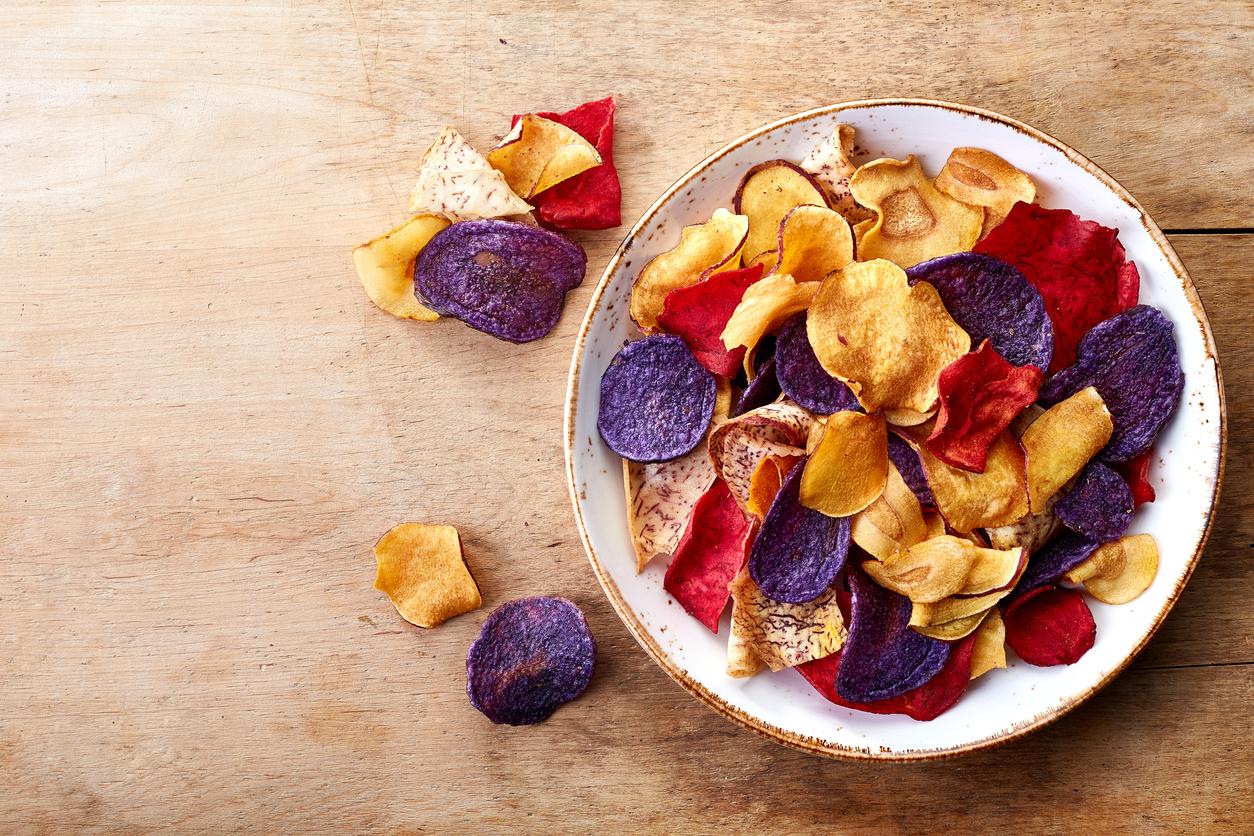Vegetable crisps are more unhealthy than regular crisps, nutritionist warns
According to new research, you could be better off indulging in a doughnut

Sweet potato, beetroot and carrot - all of these vegetables can be turned into delicious crisps to help curb your cravings.
But it turns out that one of your favourite ‘healthy’ snacks might not be so healthy after all.
A new study carried out by registered nutritionist Charlotte Sitling-Reed for Wren Kitchens has found that, in reality, vegetable crisps could be worse for you than regular crisps.
It revealed that a standard bag of vegetable crisps can contain just two-thirds of vegetables, with the remainder largely made up of salt and oil.
What’s more, this leads to the fat content of each packet skyrocketing well above other snacks considered to be unhealthy.
For instance, the data found that a 40g pack of vegetable crisps had more fat than the same serving of salted Pringles and nearly double that found in a Mars Bar.
While a bag of Tyrells Mixed Root Vegetable Crisps contained 14.3 grams of fat, a Mars Bar had only 8.6g with a Krispy Kreme Original Glazed Doughnut measuring in at just 8.3g.
Alternatively, you may be better off indulging in a packet of Walkers Quavers which contain 12.3g or the brand’s Salt & Vinegar French Fries which have just 6.4g.
“The concern with products that are often seen as ‘healthier alternatives’, such as vegetable crisps, is they don’t always match up to their reputations,” Stirling-Reed explained.
“Crisps are crisps, and even if they are made with vegetables, they are likely to contain too much in the way of fat, saturated fat and salt. In fact, the vegetable crisps here have higher levels of saturated fat and salt than some well-known, regular crisp brands.
“As a nutritionist, I’ve seen this first hand in weight loss clinics where clients may eat even as much as double a portion size of a product if it’s perceived to be healthy.”
Join our commenting forum
Join thought-provoking conversations, follow other Independent readers and see their replies
Comments
Bookmark popover
Removed from bookmarks